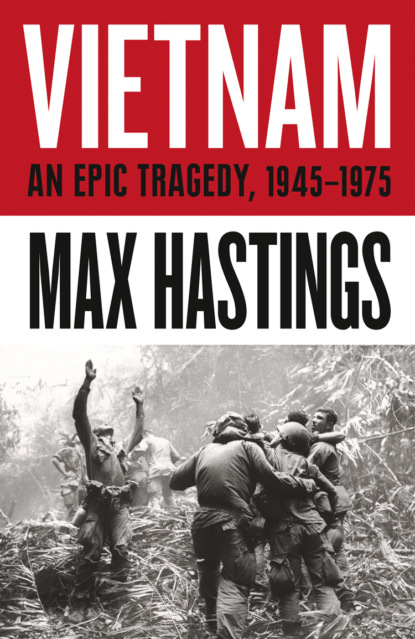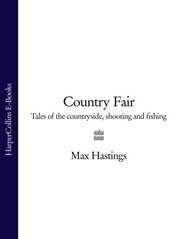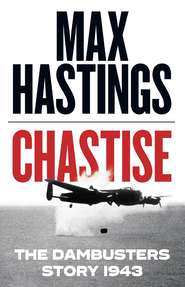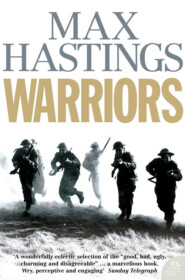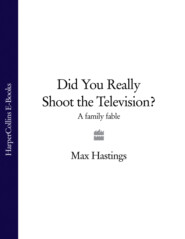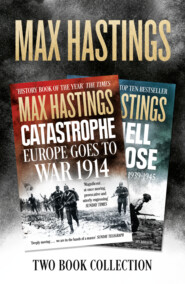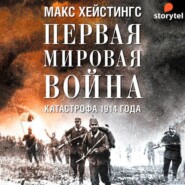По всем вопросам обращайтесь на: info@litportal.ru
(©) 2003-2024.
✖
Vietnam: An Epic History of a Divisive War 1945-1975
Настройки чтения
Размер шрифта
Высота строк
Поля
A few years after these events, US undercover agents were watching a Marseilles bar involved in the huge Transatlantic drug-smuggling operation that became notorious as ‘the French Connection’. The surveillance team was startled to identify Conein among those present, gladhanding Corsican gangster friends from his OSS days. Frank Scotton nonetheless argued that beneath Conein’s posturings as buccaneer or buffoon, the big thug could work effectively to fulfil an allotted task, which in October 1963 meant providing the link between the US government, which acquiesced in Diem’s extinction, and the Vietnamese generals who brought this about.
Lodge chafed at the sluggishness of the plotters, who, he wrote crossly, had ‘neither the will nor the organisation … to accomplish anything’. Harkins, having no time for the ambassador, shrugged to Max Taylor, ‘You can’t hurry the East.’ George Ball later argued that the notorious August Harriman/Hilsman telegram was less influential in energising the generals than Kennedy’s TV appearance two weeks later, warning that the US would withdraw aid unless Saigon changed its ways. Many South Vietnamese, both in uniform and out of it, sensed backing for Diem ebbing away. Army lieutenant Nguyen Cong Luan was a passionate anti-communist, who also hated the government: ‘My comrades and I believed that it was necessary to bring new leaders to power so that South Vietnam could deal effectively with the communists and become a place of full freedom and democracy like the United States.’ They had been much excited when South Korea’s dictator Syngman Rhee was forced out of power in 1960. ‘We believed that if our side [in Vietnam] showed enough resolution and strength for a coup attempt, the Americans would have to support us.’
President Kennedy now confused the issue by dispatching McNamara and Taylor on a ten-day ‘fact-minding mission’ to Vietnam, which began on 25 September. They returned to fantasise about ‘great progress’ on the battlefield, while deploring Diem’s intransigence. They had probed in vain for tidings about the supposedly imminent coup. When Gen. Duong Van ‘Big’ Minh, leader of the army plotters, said nothing significant to Taylor during an energetic tennis game at Saigon’s Cercle Sportif, the American decided that the plan must have been aborted. He and McNamara nonetheless concluded that military victory remained attainable, if only the Saigon government could be sorted. Which required removal of the Ngos.
The White House cabled Lodge on 2 October, emphasising that deniability was all: ‘No initiative should now be taken to give any covert encouragement to a coup. There should, however, be an urgent effort … to identify and build contacts with possible alternative leadership as and when this appears.’ Three days later Lodge messaged the president that the coup seemed likely to happen after all. Conein and Minh met for some frank exchanges, conducted in French, at an old colonial bungalow in the Saigon garrison compound. The Vietnamese said that his only non-negotiable demand was an assurance that US aid would continue. He warned Conein that time was of the essence: his own was merely one of several rival conspiracies. That day another Buddhist monk burned himself to death.
Conein’s report caused Lodge to recommend to Washington that he need merely give Minh an assurance that the US ‘will not attempt to thwart’ regime change. Kennedy assented, though warning that Americans must not be actively engaged in the process of a coup. The mood in Saigon was now febrile, with rumours everywhere of an impending threat to Diem. These had their effect in alarming the Vietnamese generals, who once more drew back from the brink. Lodge felt obliged to sack CIA station chief John Richardson, who shared Paul Harkins’ scepticism about dumping Diem.
Then Nhu intensified his campaign of political repression, and publicly heaped obloquy on the Americans for alleged meddling. After the war, senior communists observed that this would have been an ideal moment to provoke an uprising: South Vietnam had become unstable and vulnerable; almost everyone hated the Ngos. COSVN, however, merely sustained its guerrilla campaign, while in Saigon the generals bargained for support from key army units. Lou Conein sought to keep the plotters on course through soothing conversations with Gen. Don at their mutual dental surgery, which became a safe house for meetings.
On 26 October, National Day, Diem visited the hill resort of Dalat. In the prevalent jittery mood, his plane was preceded by an identical but empty decoy C-47, and the welcoming honour guard’s rifles were inspected to ensure that they were unloaded. The president had scheduled a meeting with the US ambassador, and Frank Scotton was tasked to enquire of a Vietnamese contact, privy to the coup planning, whether Lodge could enter the presidential guesthouse without getting caught in a storm of bullets. The USIA man got the necessary nod: the generals were not yet ready. The visit, and Diem’s meeting with the ambassador, took place without incident.
In Washington, divisions persisted. Vice-president Lyndon Johnson exercised little influence, but persistently opposed eviction of the Diems. As a visceral anti-communist, he saw the challenge as being simply to contrive the military defeat of the Vietcong. Never a man for nuances, he liked to pretend to jest ‘Foreigners are not like the folks I am used to,’ though this indeed emphasised an important truth about himself. On 29 October Kennedy convened the NSC to discuss a cable from Harkins, expressing the general’s desire to stick with the Ngos: ‘Rightly or wrongly, we have backed Diem for eight long hard years. To me it seems incongruous to get him down, kick him around and get rid of him.’ This message shook Robert Kennedy, who decided that a coup now looked risky.
National security adviser McGeorge Bundy dispatched another cable to Lodge, reflecting the president’s new doubts. Yet the ambassador had become determined to see the plot through: he never conveyed Washington’s equivocations either to the Vietnamese generals or to Lou Conein. On 1 November the old OSS man arrived by appointment at army headquarters, wearing uniform and carrying a .357 revolver together with $US40,000 in cash, which he deemed the appropriate fashion accessories for an afternoon’s work overthrowing a government. He left his wife and children in their villa guarded by Green Berets, and radioed from his jeep an agreed signal to his superiors that the operation was starting: ‘Nine, nine, nine, nine, nine.’ Rebel troops launched an assault on Diem’s palace, where the president and his brother took refuge in the cellar. In Saigon, the plotters seized and shot several Ngo loyalist officers. At 4.30 p.m. Diem telephoned Lodge to seek his support, and received only the offer of a safe conduct out of the country.
The plotters phoned the president, urging him to quit in exchange for his life. Instead he contacted intimates, trawling for support which was not forthcoming. At eight o’clock that evening Diem and Nhu attempted a desperate gambit, slipping out of the palace and driving to Cholon through deserted streets, defying a curfew imposed by the army plotters. The two took refuge in a house prepared by Nhu for just such an emergency, with its own communications system: they were in Cholon when rebel troops shelled and finally stormed the palace, overcoming guards who died in defence of an absent Diem. Only after hours of fighting was the wrecked building secured, then looted of everything from Madame Nhu’s negligees to the president’s impressive collection of American comics.
At 6 a.m. on 3 November, an audibly exhausted Diem telephoned ‘Big’ Minh and offered to negotiate terms for his resignation. The generals rejected the proposal, likewise a suggestion that he should be allowed to leave the country with the public honours due to the head of state. Minutes later, Diem called again: he and his brother had decided to surrender unconditionally, and were to be found at St Francis Xavier, a Catholic church in Cholon. The generals, uncertain what they should do with their redundant president, turned to Lou Conein. He said it would take twenty-four hours to produce an American plane to fly Diem out, and they would need to find a country willing to grant him asylum.
The generals delegated a veteran secret policeman to fetch Diem and Nhu from Cholon in an M-113 APC. In the party was also Capt. Nhung, Minh’s personal bodyguard, to whom the general is alleged to have given a discreet signal – two raised fingers – to indicate that the captives should be killed: Nhung had already executed two Diem loyalists the previous night. At the church, the Ngos shook hands with their escort, who ushered them into the carrier with an assurance that its armour offered protection against ‘extremists’. On the way back into Saigon, the little convoy halted at a railroad crossing, where an officer emptied a sub-machine-gun into the passengers. The carrier, awash with blood, then continued to Minh’s office at garrison headquarters, where his man announced tersely, ‘Mission accomplie.’ The general told Conein that Diem had committed suicide, then asked, ‘Would you like to see him?’ Absolutely not, said the American: there was a ‘one-in-a-million chance’ that the world would swallow the coup plotters’ story, and he declined to be embarrassed by confronting the truth.
A British Council lecturer found himself identifying the bodies of Diem and Nhu at St Paul hospital, because he was married to the late president’s niece. Diem appeared to have been hit just once in the neck, Nhu repeatedly in the back. Lodge summoned the generals to the US embassy, where he described the coup as ‘a remarkable performance in all respects’, then sent a buoyant cable to Washington: ‘The prospects now are for a shorter war.’ There were public celebrations in Saigon and other cities, with the deposed dictator’s image exultantly torn from the walls of public buildings. Hundreds of political prisoners, some showing marks of torture, were set free. An incongruous memory lingered in the minds of many Saigonese: a ban on dancing, imposed by Madame Nhu in the alleged interests of public morality, was rescinded. Thousands danced, figuratively, on the Ngos’ graves.
Neil Sheehan and some of his press corps colleagues detected an illusory gleam of hope: ‘If you stuck with Diem, you were going to lose the war. We thought, if they got a decent military regime, they had a chance.’ Gen. Duong Van Minh assumed leadership of the junta that took over the government of South Vietnam. In London The Times reported on 5 November: ‘Saigon was acting as if a great weight was lifted. Streets were crowded as they have never been crowded … Thousands of Buddhists flocked to Xa Loi pagoda for almost jubilant prayer services.’ A special correspondent added: ‘The pro-American leanings of several of the Junta … should incline them towards democracy.’
John F. Kennedy was attending a meeting with Max Taylor when news was brought of Diem’s death. The soldier recorded how the president ‘rushed from the room with a look of shock and dismay’. Subsequent arguments about responsibility seem otiose. The administration had authorised Lodge to open the seacocks, allowing the regime to founder. Recriminations about whether Washington should have ensured the availability of lifeboats for survivors are beside the point. The South Vietnamese generals would not have dared to remove Diem had they not been assured that this represented Washington’s will. Nobody convincingly warned them not to kill him.
It is sometimes argued that Diem’s regime could have reformed and survived; that the president was South Vietnam’s last nationalist and independent head of state. VNAF fighter pilot Tran Hoi said: ‘I thought the Americans quite wrong to depose him. He was a true patriot.’ Some thoughtful South Vietnamese respected Diem’s efforts, however ill-judged, to pursue his own policies rather than merely to execute American ones. Another air force officer, Nguyen Van Uc, said: ‘Diem knew that if [American combat troops] came in, the communists would always be able to say they were fighting a campaign against imperialist domination.’ A naval officer agreed: ‘After Diem’s death, there was no more real politics in South Vietnam.’
The record shows that the regime was rotten to the core, and commanded negligible popular support. Yet the manner of the president’s extinction, resembling that of a Roman emperor by his Praetorian Guard, dealt a crippling and probably irretrievable blow to America’s moral standing in South-East Asia. The US chiefs of staff were appalled, calling it ‘the Asian Bay of Pigs’. Frank Scotton said, ‘Killing Diem was a catastrophic mistake.’ He told those of his bosses who claimed to see the prospect of a fresh start: ‘Some of these generals are quite likeable guys, but do any of them have the smallest administrative or political leadership skills? Now that the first bloody coup is accepted, anyone with more than two tanks will believe they have licence for a change of government.’
David Elliott had arrived in Vietnam ‘confident that we were doing the right thing. But I soon came to believe that instead of supporting the coup we should have faced the fact that there was no common purpose between ourselves and our ally. We should have walked away.’ An Australian working later in Vietnam wrote: ‘What Americans have not learnt is that they cannot impose “democracy” on the South. For [the US] to support any government is to doom it to failure.’ An Ed Lansdale protégé, CIA officer Rufus Phillips, said of Diem’s killing, ‘I wanted to sit down and cry … That was a stupid decision and, God, we paid, they paid, everybody paid.’ Former Saigon ambassador Fritz Nolting resigned from the State Department in protest.
On 22 November 1963, forty-six-year-old US president John F. Kennedy was assassinated in Dallas. Even as the world mourned, the knot of Americans privy to the secrets of what had taken place in Saigon less than three weeks earlier reflected upon the harsh symmetry. Kennedy was succeeded by his vice-president, a man of notable political gifts, most of which would later be forgotten as Lyndon Johnson bore to his grave the terrible incubus of Vietnam. In those first days, few people outside America knew anything about its new leader. In London The Times observed with obvious scepticism: ‘On the world stage he is almost unknown.’ Arthur Schlesinger wrote dismissively: ‘He knows little and yet seems disinclined to add to his knowledge as, for instance, by talking to foreign visitors.’
Torrents of ink have been expended on speculation about the course John F. Kennedy might have pursued in Vietnam, absent the Texas bullets. The CIA’s William Colby thought he would have recognised the need for a credible political strategy, as a precondition for any US troop commitment. White House aide Kenny O’Donnell later claimed to have heard the president say that the ideal outcome would be for a Saigon regime to ask the Americans to leave. The monarch of Camelot might have persisted in a limited commitment, without dispatching half a million troops. Robert McNamara asserted that Kennedy would have got out once the 1964 election was won. However, the defense secretary’s biographer notes that he expressed this belief only long afterwards.
The evidence seems overwhelming that the president’s thinking was dominated by the requirements of his forthcoming re-election campaign. In the previous spring he had told Senator Mike Mansfield that he favoured quitting Vietnam, but could not be seen to do so before polling day. On 22 November at Dallas Trade Mart, Kennedy was scheduled to say: ‘We in this country in this generation are the watchmen on the walls of freedom … Our assistance to … nations can be painful, risky and costly, as is true in South-East Asia today. But we do not weary of the task.’ J.K. Galbraith recalled: ‘I heard [Kennedy] say many times … “There are just so many concessions that one can make to the Communists in one year and survive politically.”’
Breathless modern admiration often obscures the fact that in mid-November 1963, Kennedy’s global standing was low. The London Times editorialised on the 12th, ten days before Dallas, about a ‘sense of paralysis’ pervading the US government, of ‘general disappointment’ about its performance, reflected in failures of policy across several continents. ‘For some reason, the American administration is becoming increasingly powerless to influence events at home or abroad.’ It seems implausible that Kennedy would have dared to act in a fashion that made him seem weak in advance of November 1964. Following re-election, he might have displayed the moral courage that Lyndon Johnson lacked, to cut America’s losses – but he probably would not.
Kennedy’s Vietnam policy suffered from the same fundamental flaw as that of every other president between 1945 and 1975: it was rooted in the demands of US domestic politics, rather than in a realistic assessment of the interests and wishes of the Vietnamese people. Kennedy was a sufficiently intelligent and sensitive man – consider his earlier scepticism about Indochina – to recognise the unlikelihood of American military success there. However, in the climate of the Cold War, which was then very cold, the political costs of staying in South Vietnam appeared to the Kennedy White House lower than those of being seen to quit, fail, lose, give best to the communists. Neither the president nor Robert McNamara grasped the depth of the potential downside of Vietnam for their own country.
By the end of 1963 the Saigon government had no physical presence in some parts of the Mekong delta, designated by the communists the ‘20/7 Zone’ – date of the 1954 Geneva Accords – and such ‘liberated areas’ expanded rapidly in the confusion following the death of Diem. Southern troop morale slumped, and even supposedly elite formations showed little appetite for engaging the enemy. The strategic hamlets programme collapsed. With astonishing suddenness, across large areas of the country the NLF found themselves in the driving seat. Americans enjoyed a black joke about an alleged conversation between Lodge and ‘Big’ Minh, in which the ambassador urged the general to promote reassurance among the Vietnamese just as Lyndon Johnson did with his televised address after Kennedy’s assassination. Minh said: ‘Fine. Give us TV.’
The fall of Diem prompted a crisis meeting of Hanoi’s central committee, which began on 22 November. Ho Chi Minh offered to moderate, but the hawks rebuffed this suggestion: there is an unconfirmed claim that he stormed out, in dismay or disgust. Such a gesture would have been uncharacteristic, though a month later he is alleged to have told the Soviet ambassador that he was retiring from politics. What is certain is that the meeting marked the end of Ho’s significant influence upon events – though not of his status as the personification of his country in the eyes of the world – and confirmed Le Duan as foremost power in Hanoi, with Le Duc Tho his most influential subordinate. Le Duan enjoyed an immense advantage over his foes both in his own country and in the US: he was the only important player whose objective was clear and unwavering – to create a unified, Stalinist Vietnam. It is worthy of notice that less than thirty years before the collapse of the Soviet empire, he displayed no glimmer of understanding of the epochal failure of its economic model.
Relations with Beijing – now more Stalinist than Stalin’s Soviet successors – had become much closer: on 2 August in Beijing, the Chinese had signed an agreement promising direct military support for North Vietnam in the event of a US invasion. Whether Mao would have honoured this is highly debatable, but in the autumn of 1963 the pact greatly strengthened the hand of Le Duan and his activist comrades in the politburo. China’s president Liu Shaoqi, visiting Hanoi, offered more active encouragement for the Southern liberation struggle than had any recent Beijing leader. Chinese weapons began to arrive in quantity, and to flow southwards, while 7,850 troops from the North made the epic trek to ‘Battlefield B’, as Hanoi designated the South. November’s Party central committee meeting ended with an unequivocal commitment to a new proactive, aggressive, explicitly military campaign.
Le Duan and his colleagues thought the new Saigon regime would quickly implode, and thus that the Americans were unlikely to dispatch ground troops in support of a lost cause. Anxiety to fill the power vacuum in the South caused them to decide upon an urgent escalation, expressed in Resolution 9, formulated in December 1963 and enshrined in two documents of which one was published on 20 January 1964, the other remaining secret: ‘Strive to Struggle, Rush Forward to Win New Victories in the South’. Meanwhile at home, the hardliners launched a new purge of ‘rightist deviationists’, some of them heroes of the Vietminh era: thousands of officials, journalists and intellectuals were dispatched for re-education.
Resolution 9 represented a historic commitment to wage an armed struggle to the bitter end. While Moscow and Beijing were troubled by its possible consequences, and for some months Soviet aid was near-zero and the Russians had no ambassador in Hanoi, both became reluctantly convinced that they must be seen to support the cause of revolution and liberation with ever more generous arms supplies. Hanoi roused its supporters: ‘The time has come for North Vietnam to increase its assistance to the South … The enemy … is using his armed forces to kill and plunder the people … The only way to smash them is through armed struggle, which hereafter becomes decisive.’ Though the Mekong delta witnessed the most immediate increase in guerrilla activity, the epicentre of the struggle would progressively shift towards the Central Highlands and the area north-west of Saigon. The communists’ ambitious new objective was to engage, maul and break the spirit of the South Vietnamese army.
Some historians believe that in 1962–63 important opportunities were missed to make a peace deal. This may be true, insofar as the North Vietnamese, and Le Duan himself, for a season considered negotiating an American exit, followed by neutralisation. It is wildly unlikely, however, that President Diem would have accepted a deal that involved sharing power with the NLF. Moreover, had a bargain been struck, this would have provided only the briefest pause before Vietnam became a unified communist state: neither Hanoi nor COSVN would have renounced violence in exchange for anything less.
Hindsight may suggest that such an outcome, such a surrender, would have been preferable to the decade of murderous strife that instead ensued. Most South Vietnamese, and especially the Buddhist leadership, would have chosen peace on any terms; it was their American sponsors who rejected such an outcome, arguing that to sentence the people of South Vietnam to share the dismal economic, social and political fate of their Northern brethren would represent a historic betrayal.
The communists and the United States rightfully share responsibility for the horrors that befell Vietnam after the death of John F. Kennedy, because both preferred to unleash increasingly indiscriminate violence, rather than yield to the will of their foes. American field artillery officer Doug Johnson said: ‘The first major turning-point in the war was the assassination of Diem. From that day, we had lost the moral high ground. Everyone knew that we were complicit. Who was going to trust us? Serving in Vietnam, I thought: “I will do the best I can, and I wish these people well, without much hope that this will end in a good way.”’
8
The Maze (#ulink_bcdb1e0c-f514-5a17-8fa0-dea144d1a6a0)
1 ‘ENOUGH WAR FOR EVERYBODY’
A general soothed the impatience of Lt. Don Snider on his passage to Vietnam, saying, ‘Son, there’s going to be enough war for everybody.’ Snider, born in 1940, hailed from an Ohio cattle-farming family. He had loved West Point, ‘because it represented the kind of values I had been raised with’, and in 1964 found himself training and advising Vietnamese special forces. All the Americans who served in those early days went by choice, found thrills and also frustrations. Snider made operational parachute descents near the junction of the Vietnamese, Laotian and Cambodian borders: ‘When I jumped out of the plane at night, I couldn’t have told you what country we were over.’ They landed atop triple-canopy jungle, then roped themselves to the ground. He loved some of his American comrades, especially a formidable NCO named Sgt. Zahky. ‘What an opportunity it was, to go to war with somebody like that!’ he said wonderingly. After days and nights of probing the enemy’s territory, the hard part was to make the rendezvous with extraction helicopters.
Snider never bonded effectively with his men, most of them Nungs – ethnic Chinese: ‘In three tours I never really got to know them, to work out whom to trust. They were mercenaries. They said, “If you pay me, I’ll fight.” Eventually, however, the pay wasn’t enough.’ Snider completed seven deep recon missions before transferring to the delta to train and lead local defence forces on the Cambodian border. They ran into some bad ambushes while searching for Lt. Nick Rowe, a Texan SF man held by the Vietcong for five years. Snider came out of one clash humping a wounded interpreter on his back, and with bulletholes in their radio: ‘There was no will among the Vietnamese people I was with. I thought: if this is the way we are going to fight this war, it is not going to be a successful proposition.’ By his tour’s end, ‘I didn’t want to do any more with special forces or with the Vietnamese. I wasn’t disillusioned with war – experience had just taught me that what I was doing wasn’t worth it.’
Snider came to believe that the only advisers who accomplished worthwhile things were those who, unlike himself, forged relationships with local people. Frank Scotton, soon after arriving in country, rode in a jeep with a sergeant who waved and smiled extravagantly at every civilian they passed. Scotton asked, why the big show? The driver replied, ‘If I get captured, I want the Vietnamese to remember me as a big, dumb, friendly American.’ Helicopter door-gunner Erik Dietrich loved his ARVN comrades, among whom he ferried many wounded back from battlefields – or maybe not: ‘They died quietly, sometimes even with what I took to be an apology for the inconvenience and mess they were causing.’ Dietrich nonetheless admitted embarrassment when a little paratrooper whom he befriended tried to hold hands. ‘His last letter wandered about the country for a time before finding me: “A month missing you. I couldn’t help remembering of our working days. I never forget … I wish you a good luck on your way of duty. And when we see each other again, I shall give you a good narration.”’ Dietrich reflected sadly later: ‘The “narration” never got told. Nguyen Chanh Su, Vo Van Co, Bong Ng-Huu. What became of you all? Pham Gia Cau, you dear brave man who fought at Dienbienphu and walked south at the partition, to whose capabilities I unhesitatingly entrusted my life, you are ever in my prayers …’
Yet some Americans were driven almost to despair. On 1 March 1964 foreign service officer Doug Ramsey wrote home to his parents: ‘The fabric of this government is rotten to the core, and from top to bottom. You pull a lever and find that there is no cable attached to it; and if you manage to get hold of a cable, there’s nothing on the far end of that, either … Unless we are willing to promote real revolutionary change, I’m afraid I must agree with those who say we have no business being here. If we cannot offer the people of Vietnam anything better than a protracted struggle … If we merely continue to … bolster a feudal regime that is doomed anyway … we cannot expect real support.’
Ramsey later became assistant to John Vann, out of the army and serving as regional pacification chief in the delta. He described the colonel starting with ‘the small, determined, reverse-slanting eyes, somewhat reminiscent of the movie star Lloyd Bridges, which transfixed you like blue-gray laser beams. His voice was slightly harsh, with a southern Virginia accent. He was fairly short, with blond hair thinning in front; and at forty-one, he was beginning to develop a slight paunch.’ Ramsey respected Vann’s ‘animal physical vitality’, which persisted through sixteen hours of every twenty-four, and the man’s competitiveness: ‘He wanted to know everything about everything and everybody. With his prodigious memory and eye for detail, he could have been an immensely successful administrator … save that he cherished a passion for action. He described himself as a Virginia redneck at heart, and maybe he was. His loyalty to friends and loathing for foes were absolutes. He was also a fabulous networker, cultivating ruthlessly and usually successfully the acquaintanceship of anyone who might fit his purposes.’ Superbly athletic, he could perform a somersault from a standing start and was a showy volleyball player.
Lt. Gen. Fred Weyand said, ‘He was one guy I would have trusted with my life.’ Ramsey described Vann as fanatically self-disciplined about everything save sex: ‘John’s idea of relaxation was to have two sisters on the same night, but I had no right to complain, because he offered to cut me in.’ He believed that for all Vann’s manic womanising, this muddled man retained a deep love for Mary-Jane, the former wife whom he had betrayed so often. Army captain and adviser Gordon Sullivan admired Vann’s grasp of Vietnamese realities, rather than games played to please Americans. ‘He’d say: “I’m not interested in the dog and pony show.” A lot of the opposition to him came from jealousy.’
Such thoughtful men as Doug Ramsey were alternately exasperated by failures of US policy and revolted by communist savagery – the latter’s atrocities took place daily: ‘shooting into school yards in the hope of getting three ARVN soldiers amidst fifty children, or killing dozens of civilians in restaurants or on the streets to chalk up two Americans; mortaring towns willy-nilly to terrorise; assassinating unarmed teachers and murdering disarmed PoWs; killing female friends of GVN officers, as well as the officers themselves’. Ramsey urged that a successful pacification programme must work through small local advisory groups, unashamedly modelled on communist cells.
He and Frank Scotton once arrived in a hamlet unannounced, and entered its chief’s courtyard to find a cluster of black-pyjamaed men, obviously NLF, conferring within. They scowled at the newcomers, but made no hostile move since both Americans were armed. The hamlet chief assured both groups that if everybody stuck to his own business, nothing unpleasant need happen. The communists eventually recognised the comedy of the situation and posed for photos. Nonetheless, when the Americans drove away, they were relieved there had been no High Noon. And sobered to witness the freedom with which the enemy transacted business in broad daylight, within an hour’s drive south-west of Saigon.
For all its difficulties and frustrations Ramsey, like Scotton and Vann, loved the life. While rejecting Lawrence of Indochina comparisons, he liked to see himself as Spartacus, ‘though look what happened to him’. He wrote: ‘At worst, being in Nam provided one with opportunities to pander to and magnify childhood macho self-images: the heroic swashbuckler, rifle in one hand and candy for the kids in the other, by day doing his thing for God, country, democracy and free enterprise, in an environment providing enough danger to keep the blood running fast, the stories flowing and building, the promotions coming through – and by night being able to sample all that Saigon had to offer. In the words of Tom Lehrer’s 1953 “Old Dope Peddler”: in Vietnam, while doing good you could also do very well indeed.’ More than Lehrer’s satirical ballad, however, Ramsey became increasingly obsessed with the music of Benjamin Britten’s War Requiem.
The CIA’s Frank Snepp came to Vietnam later, but was cast in the same mould. He was the son of a fiercely establishment ex-Marine colonel and subsequent judge, with whom he had a troubled relationship. The most loving bond of his childhood in North Carolina was with his black nanny. His best claims to employment by the CIA on leaving Columbia’s School of International Affairs, he wrote, were ‘Aryan blood, a country-club mentality, and an immense capacity for dissembling’. He might have added, good looks that enabled him to sleep with an astonishing range of girls, some of them employed by the Agency. His critics called him priapic, though he would have preferred the word romantic. Two weeks into Snepp’s first tour as an intelligence officer, the Pilatus Porter in which he was crossing the Mekong delta took rounds in the wings from communist small arms, and the twenty-six-year-old exulted, murmuring to himself, ‘I love it! My God, I love it.’ He said later: ‘It was simply great. I fell in love with Vietnam and the Vietnamese … I believed that if the CIA generated the right intelligence and got it to the right people, we could really make a difference for the better.’
Harry Williams started working as a wireless eavesdropper in April 1964, and embraced the assignment eagerly: ‘This was a good war, a wonderful war. We were cowboys. I loved the work, and felt I was making a real contribution. I felt assured of the rightness of our cause, and that we would win.’ He left his pregnant wife Peggy at home in the US, and rented a Saigon apartment. Because he could speak their language, Vietnamese neighbours branded him ‘the Frenchman’. He travelled extensively around the country chatting to local people in those days before wandering became prohibitively perilous. One day up near Danang, a village elder asked him in puzzlement, ‘Why did they kill Kennedy?’ Williams found that many Vietnamese grasped the notion that the president had been seeking to help them, and vaguely suspected that his death might have been linked to this. The American decided that the default political stance of most local people was indifference to both sides: ‘The average Joe on the street really couldn’t care less, except to stay alive.’
The longer sensitive Americans stuck around, the more they lamented the change coming over Saigon. The tall plane trees on Tu Do were felled, and traffic doubled. Old hand Howard Simpson said: ‘The sleepy colonial capital had become a crowded, dirty wartime metropolis.’ Adviser Col. Sid Berry wrote: ‘Saigon has greatly changed … It has grown crowded, vulgar, glossy, commercial, grasping, greedy, dirty, tinny. Too many Americans. Far too many Americans. Who drive up prices, attract the cheap and gaudy and tasteless.’
The tempo of the war rose steadily. Williams often dined at the Brasserie, a little restaurant behind the Rex cinema run by a French-Vietnamese woman named Helene. One night in August when he entered, she greeted him by saying seriously, ‘You should eat somewhere else.’ Sure enough, an hour later the place was bombed. That summer, Williams was assigned to a team monitoring North Vietnamese infiltration on the Ho Chi Minh Trail. They established a base at Khe Sanh, close to the western end of the DMZ, less than three miles from the border with Laos, where a special forces A Team was already ensconced. The key personnel were civilians from Syracuse University Research Corporation, a body created by the Office of Naval Intelligence. Their technology was dubbed POSSUM: Portable Signal Unscramble Monitoring System.
The plan was to plant sensors on nearby Hill 1701. On 28 May an H-34 airlifted Marine Capt. Al Gray and three Vietnamese to clear the summit with defoliants. Gray was an austere, dedicated warrior who relished the drollery that his ARVN sergeant had once commanded a Vietminh machine-gun company: ‘He was a great warrior.’ On the mountain, matters went sour: within hours of their arrival rain and mist descended – and stayed down for thirty days, preventing the team’s extraction. They subsisted for a while on starvation rations, then decided they must walk out. The descent went without incident save the usual leeches and big animals, until they emerged from the jungle to confront a man bathing: VC. They shot him, then bolted towards Khe Sanh. For the last six miles Gray carried a wounded man, earning himself a Bronze Star. The electronic monitoring eventually got started.
Many of that first crop of Americans were earnest men who feared God as well as honouring the flag. Sid Berry wrote to his wife Anne: ‘A good rest this weekend. Needed it. Now back to the fray. 101 sit-ups, 40 push-ups, 30 waistbands, two chapters of Romans, a shave, shower and now a letter to thee.’ Even some of those who spent fewer hours with their bibles than did the good colonel were less preoccupied with bargirls than legend suggests. A newly-arrived special forces NCO looked in awe at the filth coating Frank Scotton and his team after days in the hills and said, ‘Gee, after your experiences I bet you guys go wild with the ladies when you get into town.’ Scotton disabused him – their first priorities were always the same: a bath and decent sleep in a clean bed.
A few Vietnamese managed to enjoy the war, including Nguyen Van Uc, who clocked six thousand hours as a helicopter pilot. ‘I loved flying,’ he said, ‘and got huge satisfaction from doing the job when it went right.’ Most of his countrymen, however, took a bleaker view. One morning in August 1964, Lt. Phan Nhat Nam of Saigon’s 7th Airborne approached a bunker entrance in an apparently deserted village. ‘Anyone down there?’ shouted one of his men, then turned to Nam. ‘Lieutenant, let me toss a grenade in.’ Nam, twenty-one years old and experiencing his first operation, told the soldier instead to fire a burst from his Thompson.





